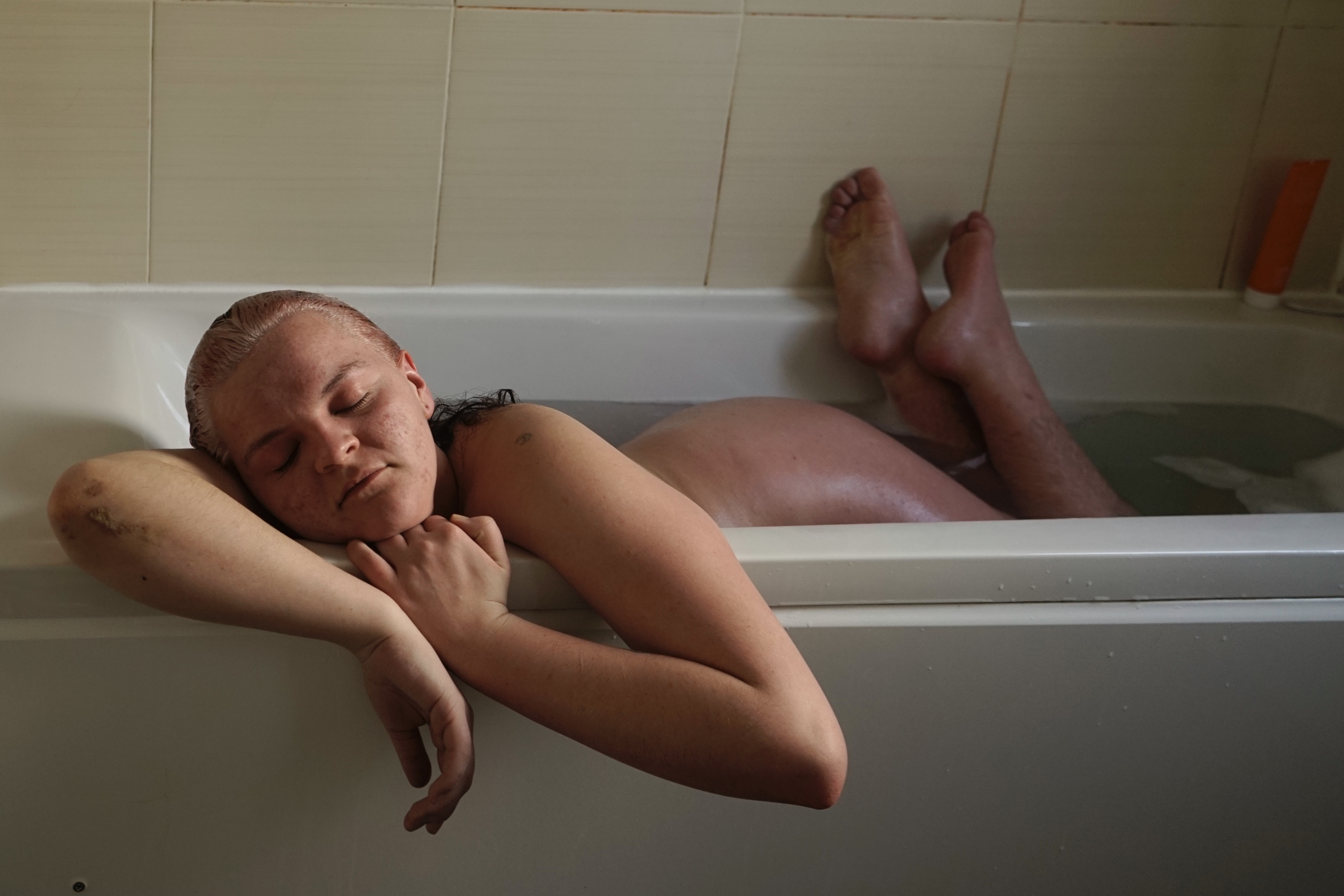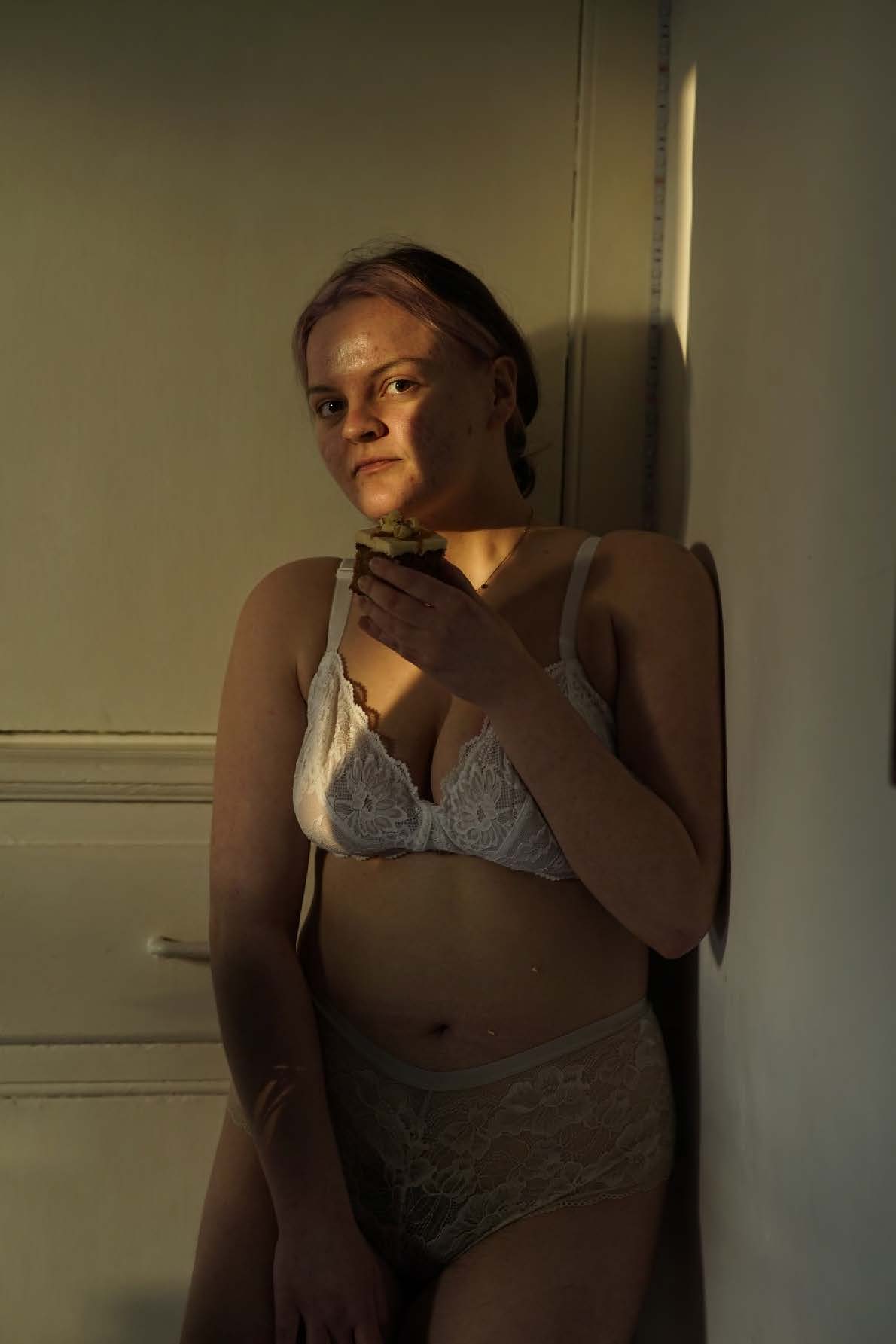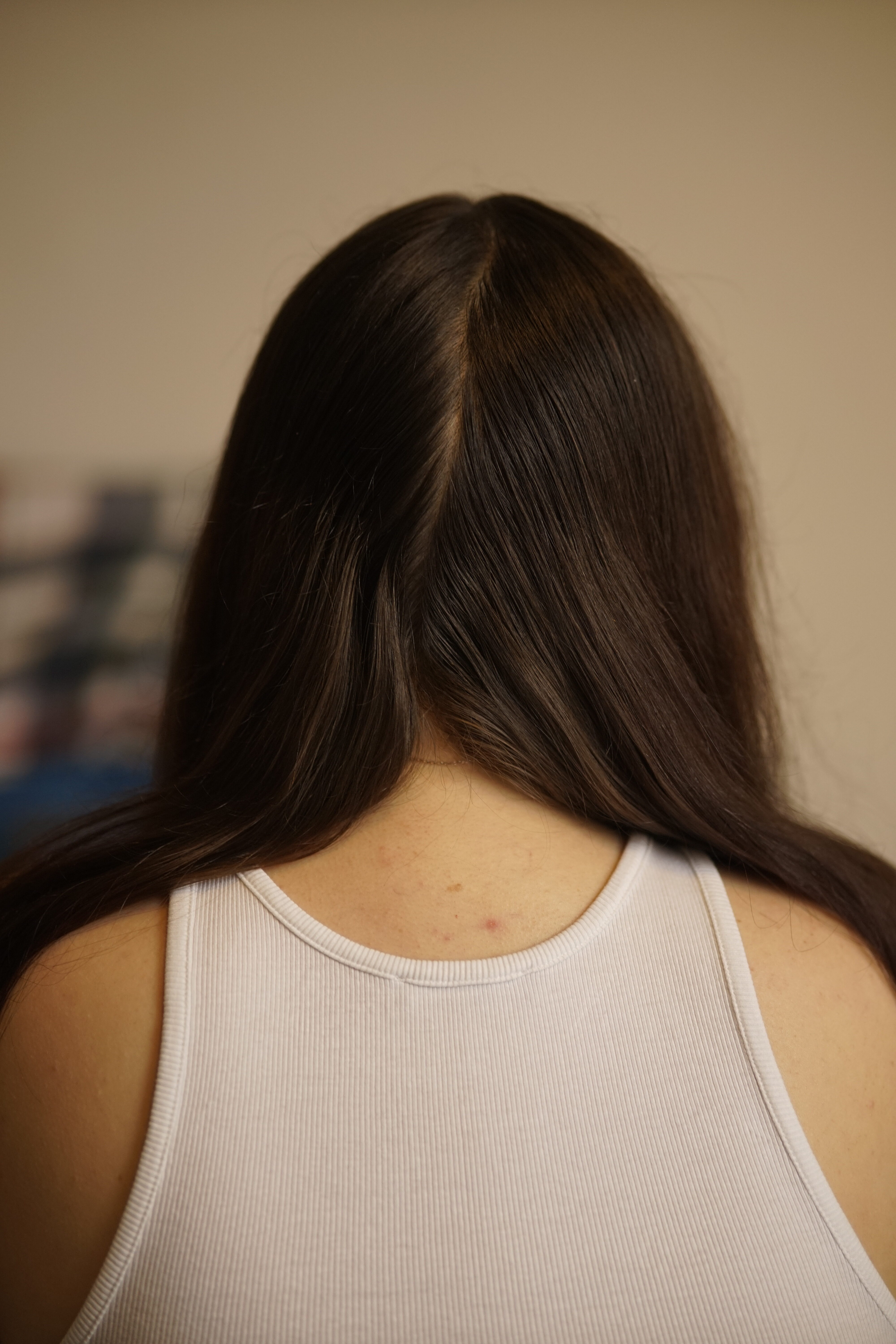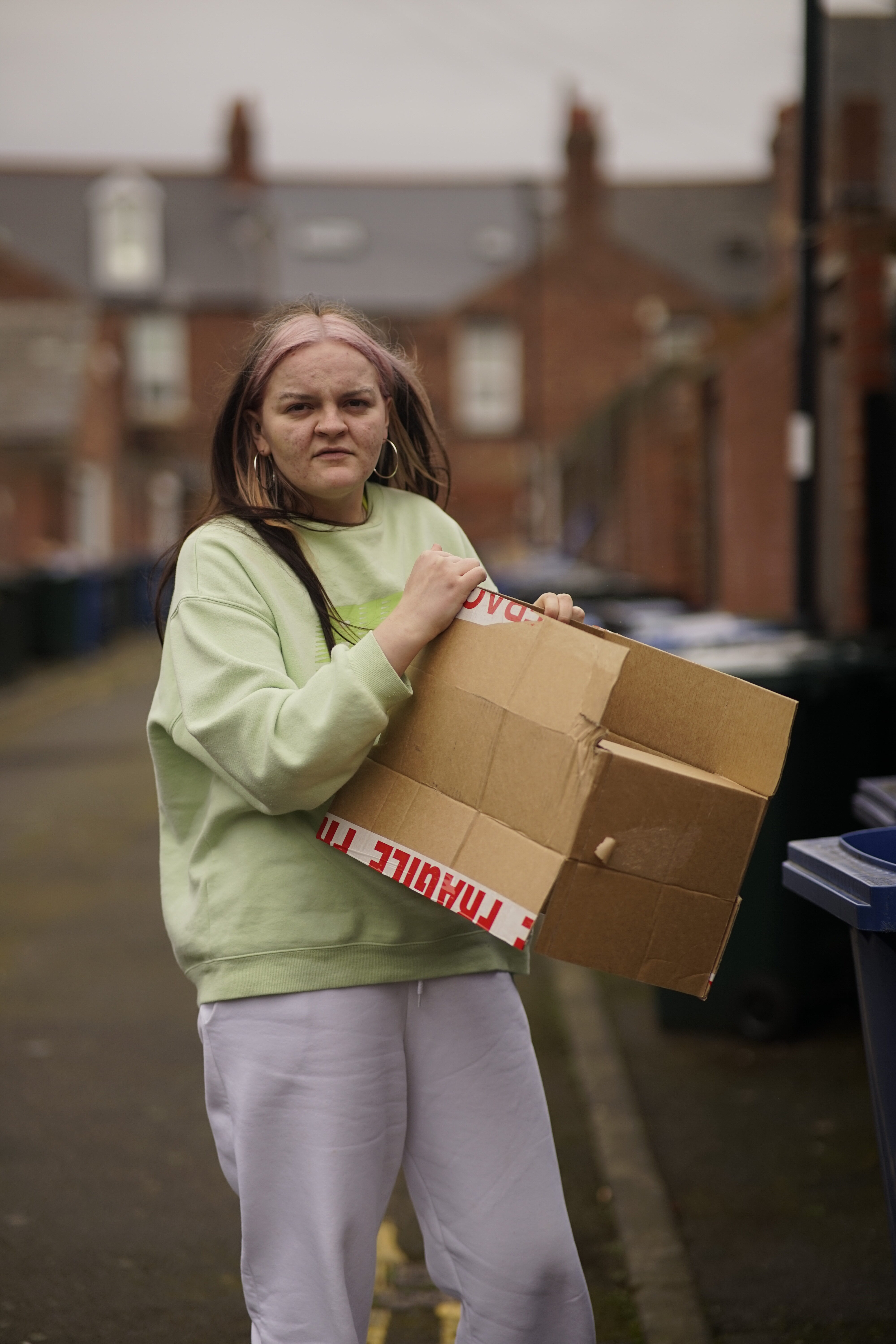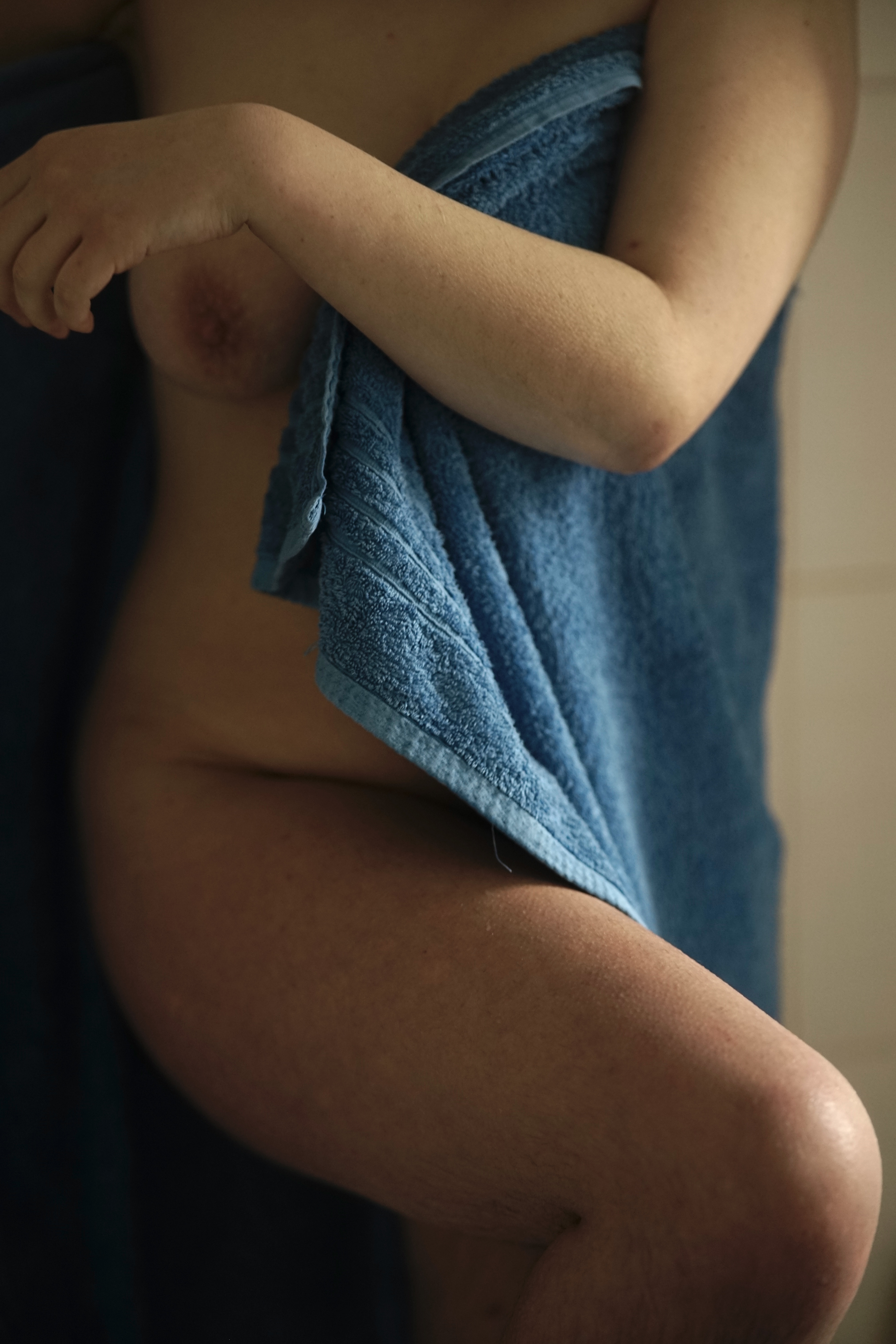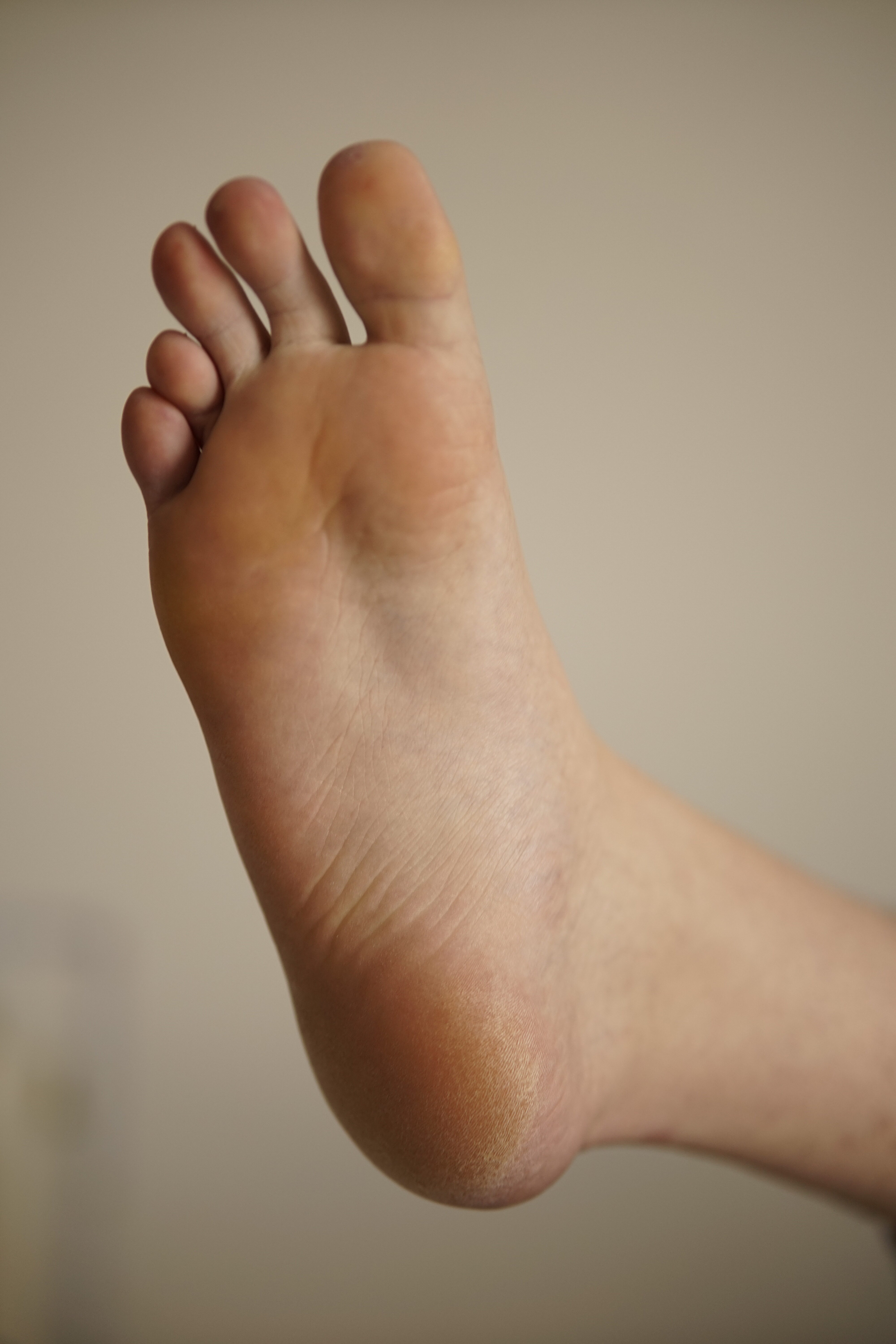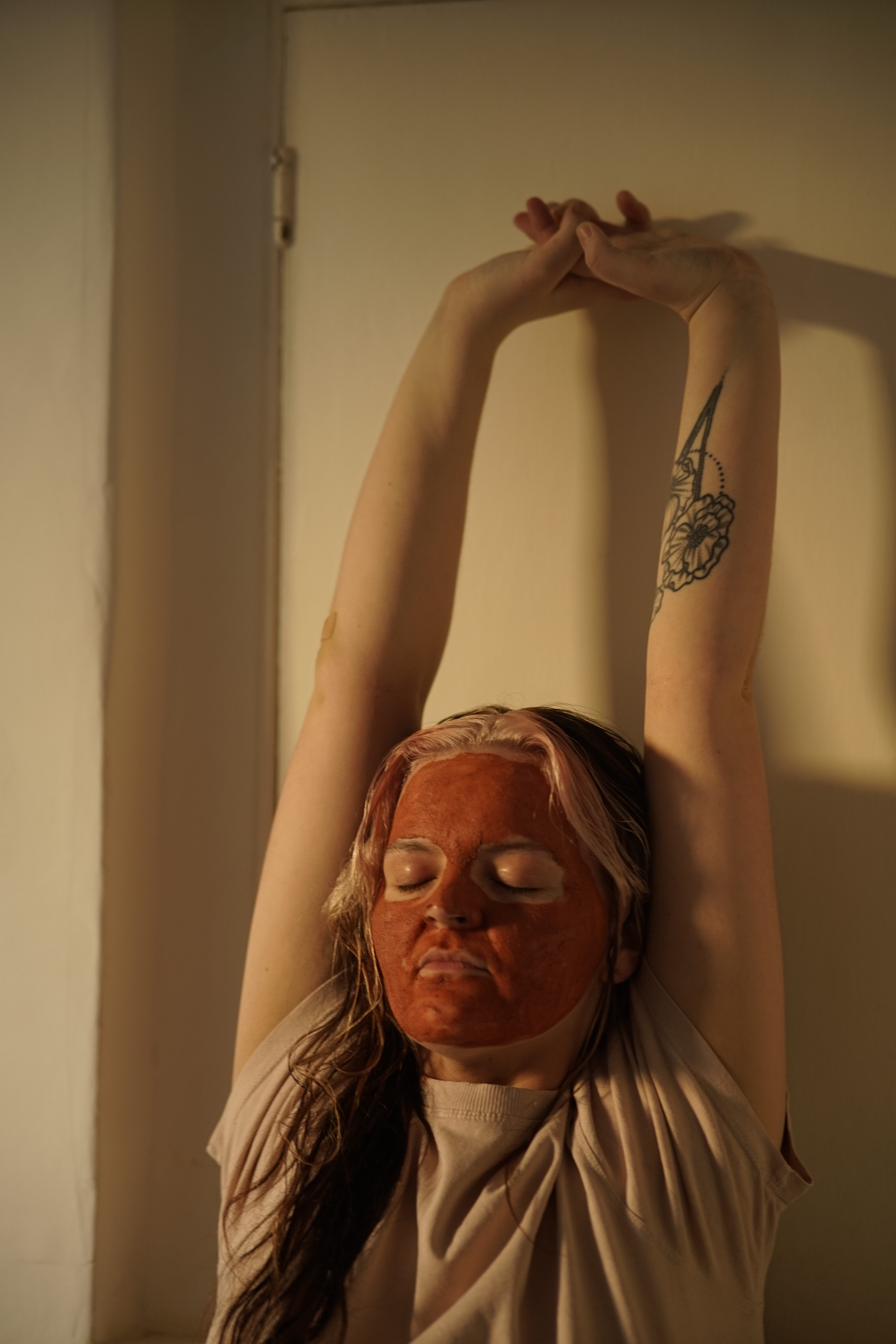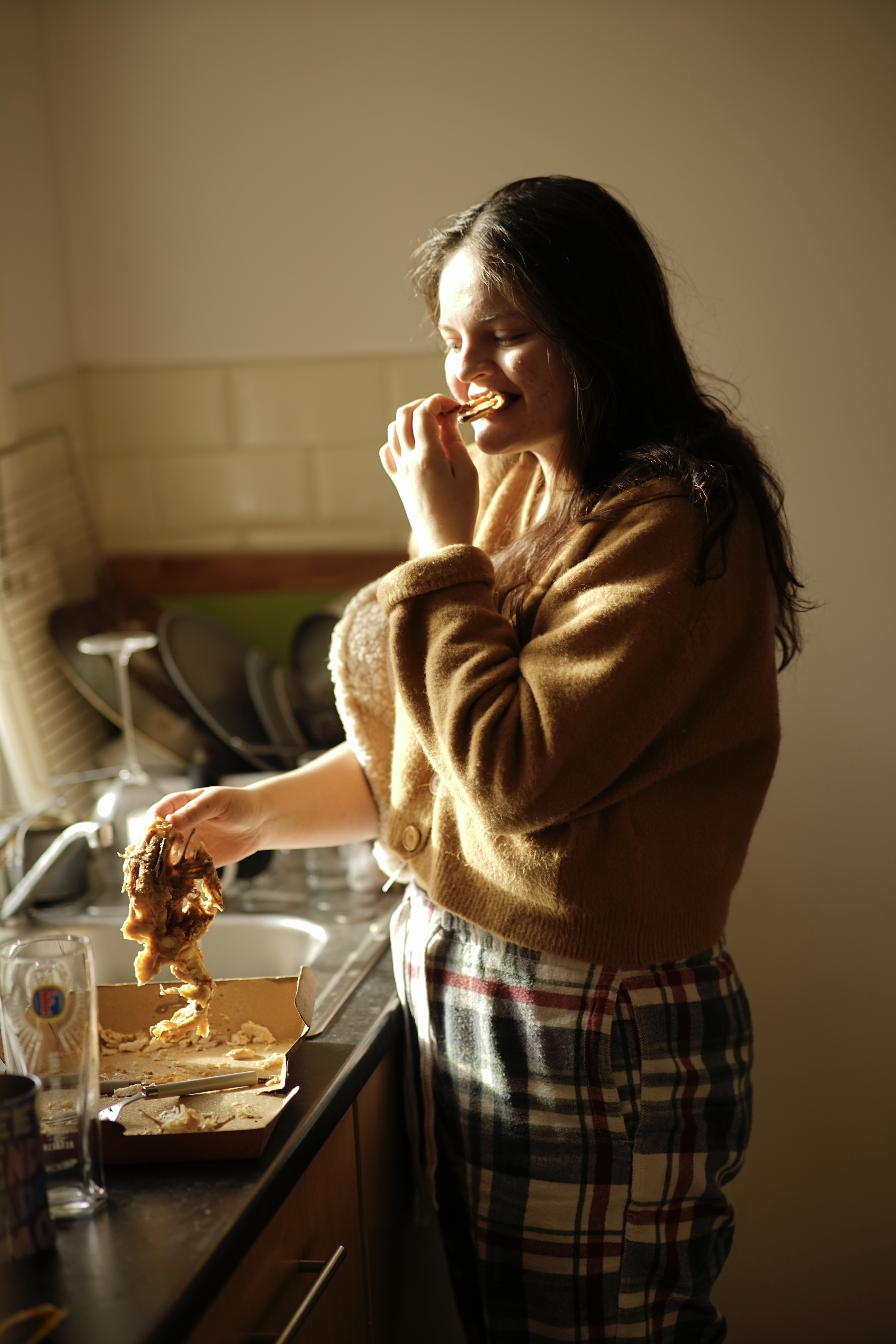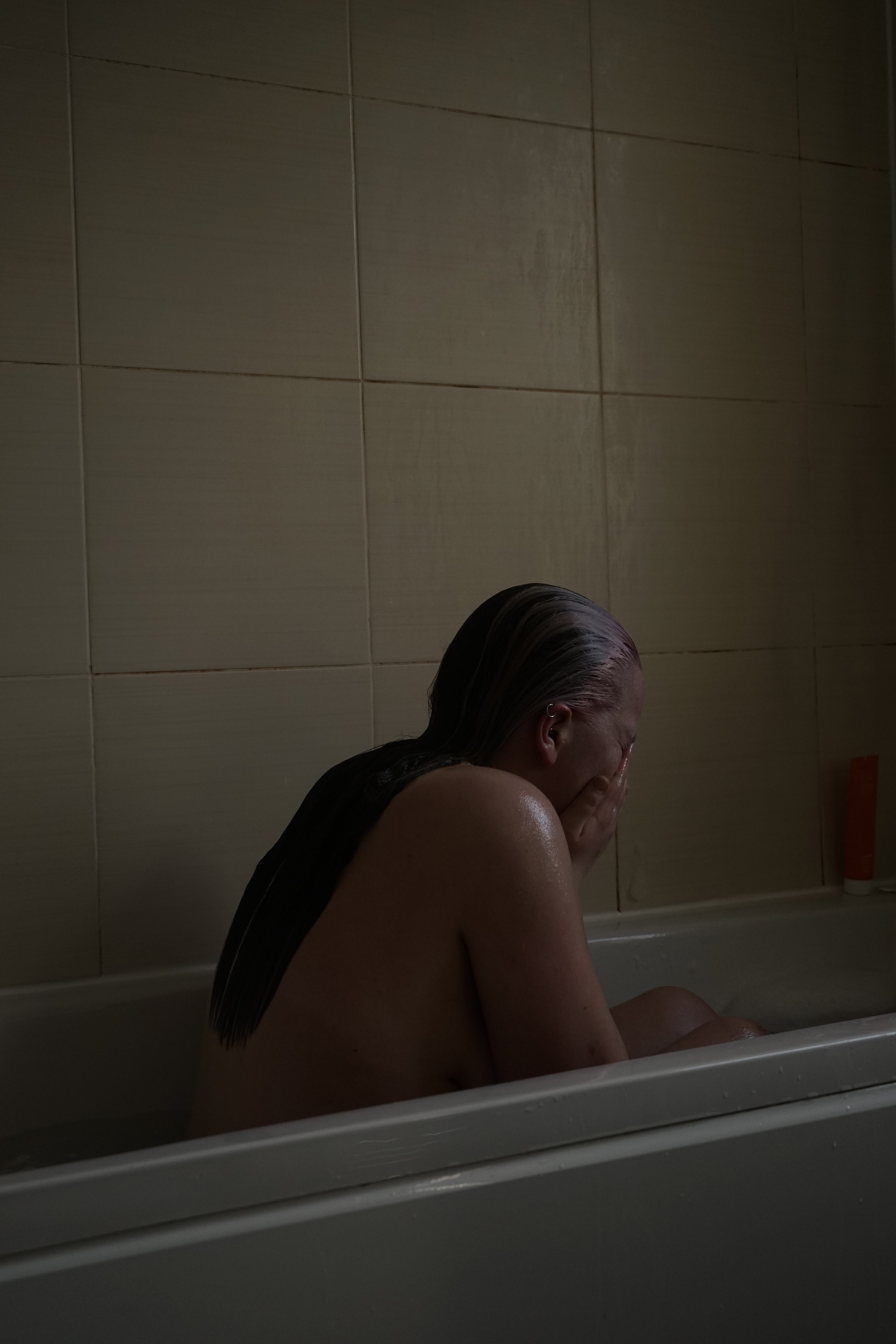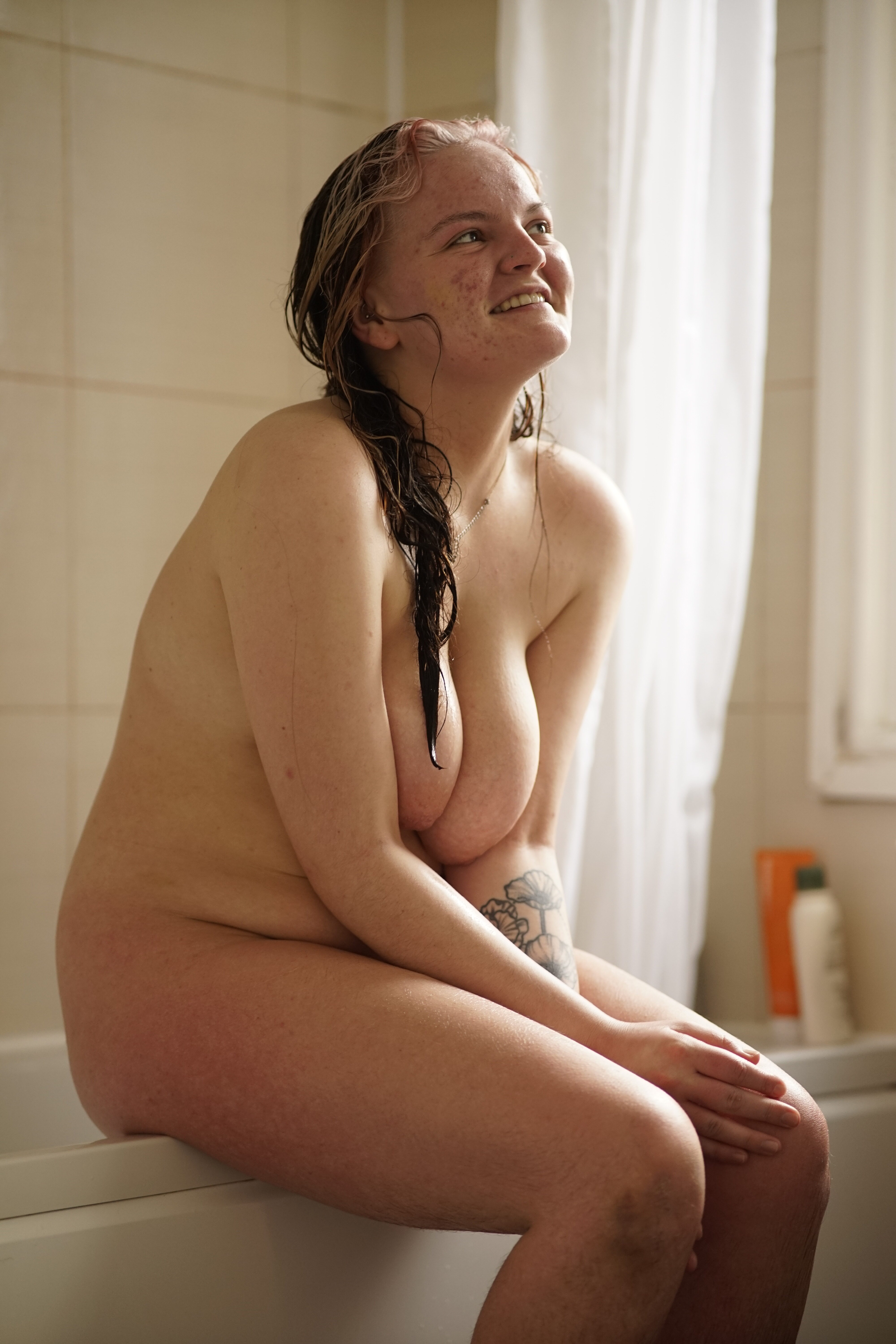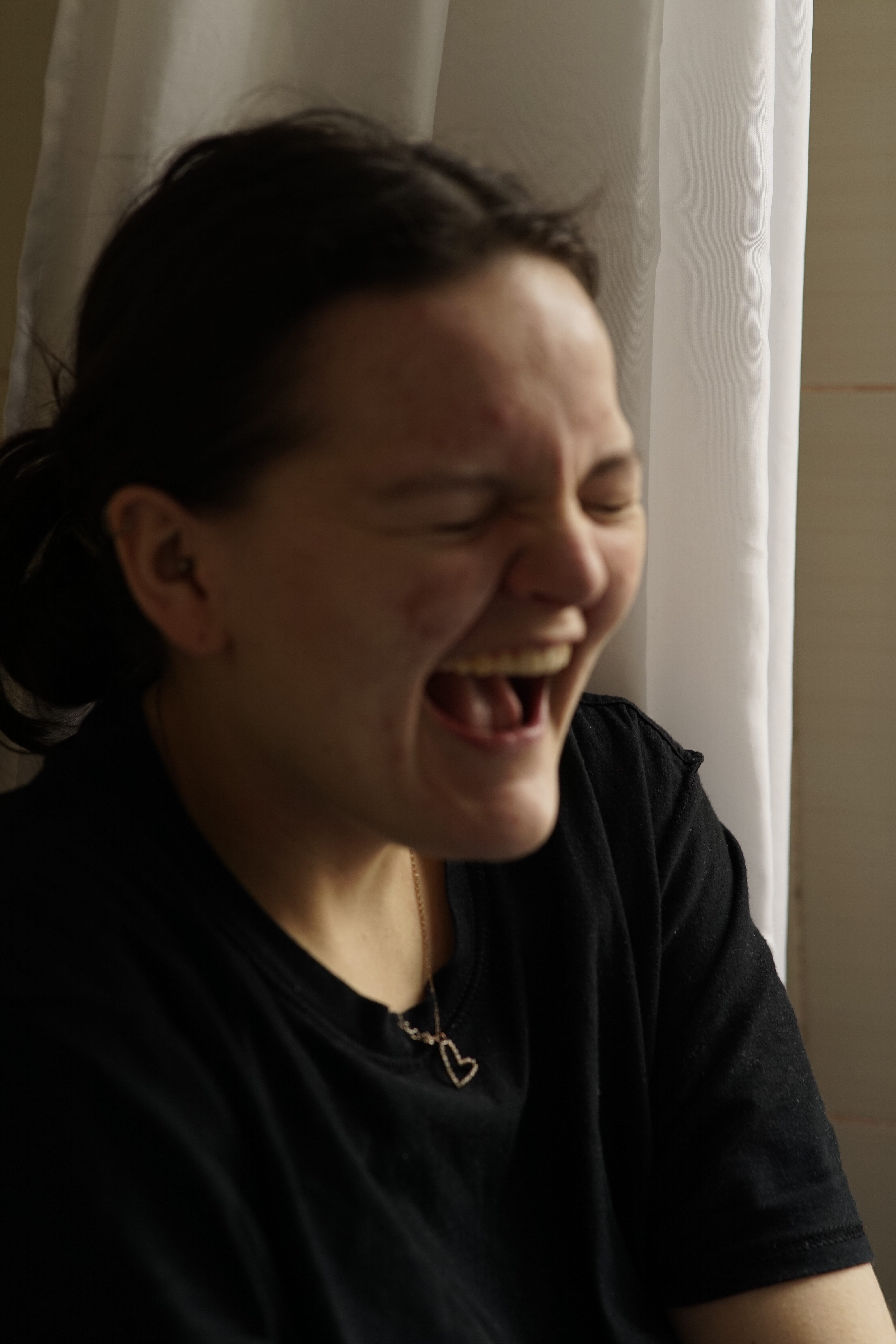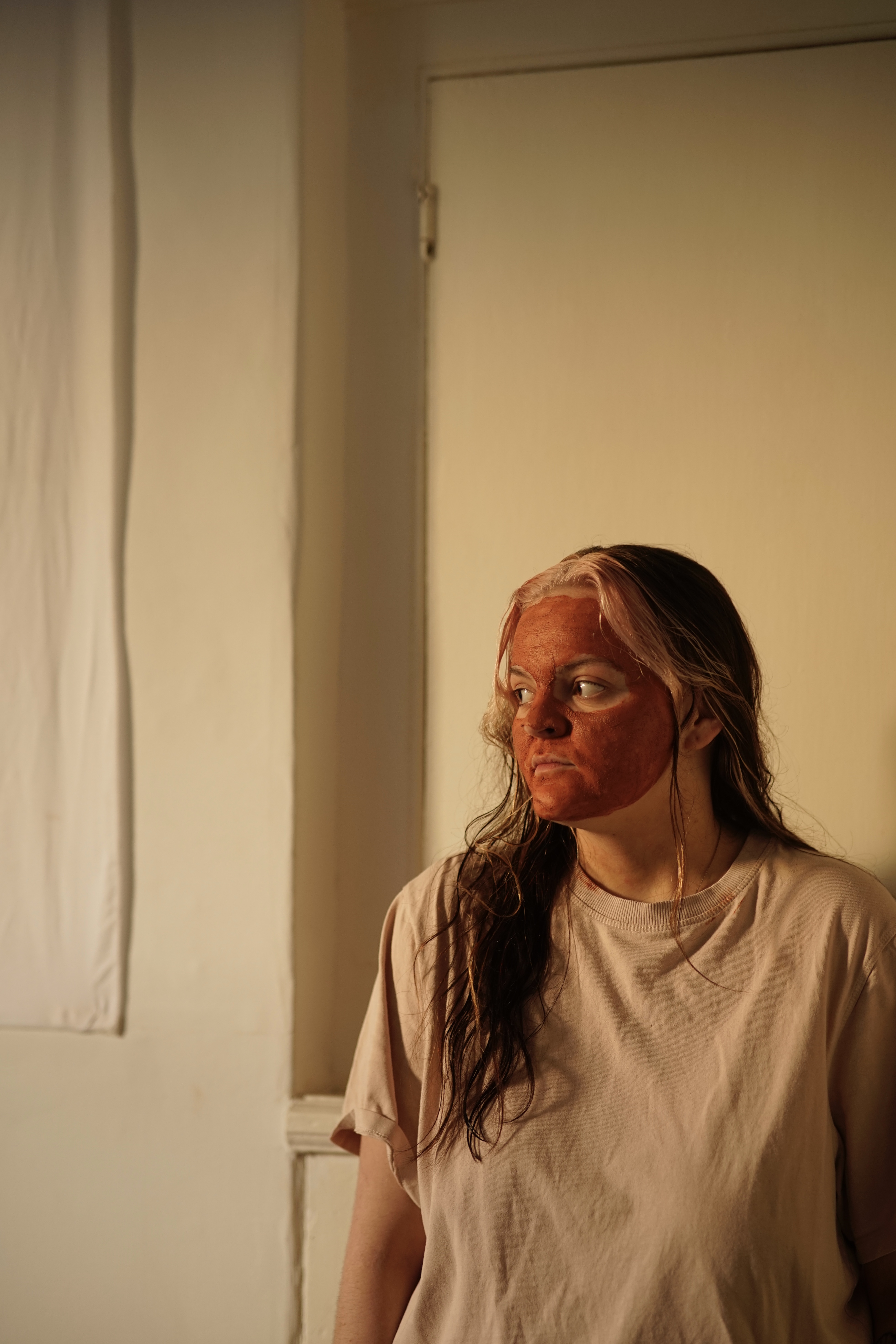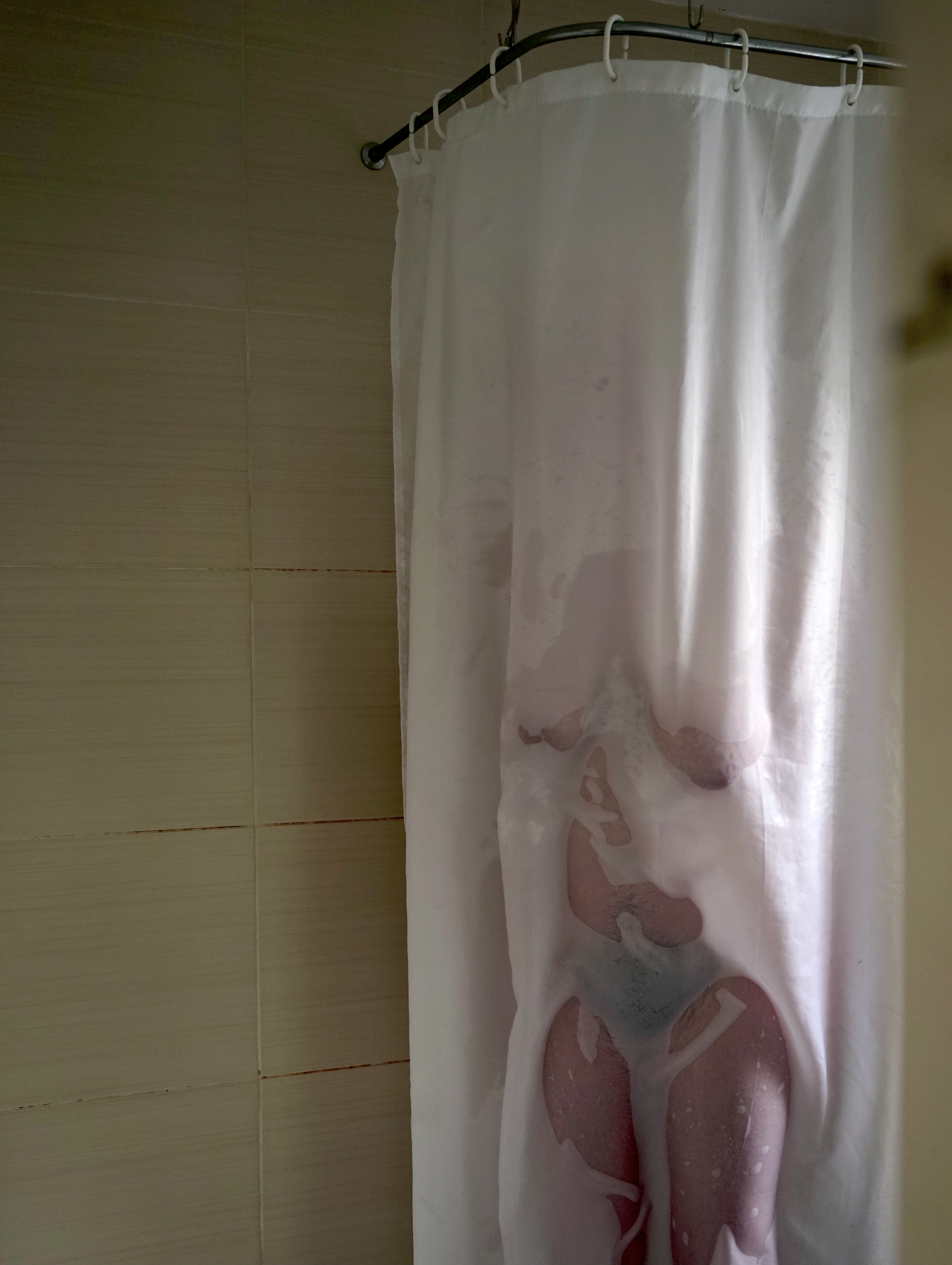All images © Sophie Russell-Jeffrey
Collaborating with her childhood friend, Sophie Russell-Jeffrey was able to access the most difficult episodes of their past – and push her portraiture into raw new territory
Sophie Russell-Jeffrey was born and raised in Towcester, a small East Midlands town of around 10,000 people where “everyone knows everyone’s business”. Growing up, she found that traumatic events would often get spun up into town gossip. “It always seemed harmless, but when you really look back at it, we had to endure a lot of assault and harassment,” she says. “As the person going through that, you’re almost more concerned about managing people’s opinions [as] you are about recovering.”
Now a 24-year-old photographer, Russell-Jeffrey’s projects are not directly about her upbringing, but they derive from an interest in stories that “sit beneath the surface”. Intimate and diaristic, these are narratives about recuperating from experiences with addiction, disordered eating, or sexual trauma.
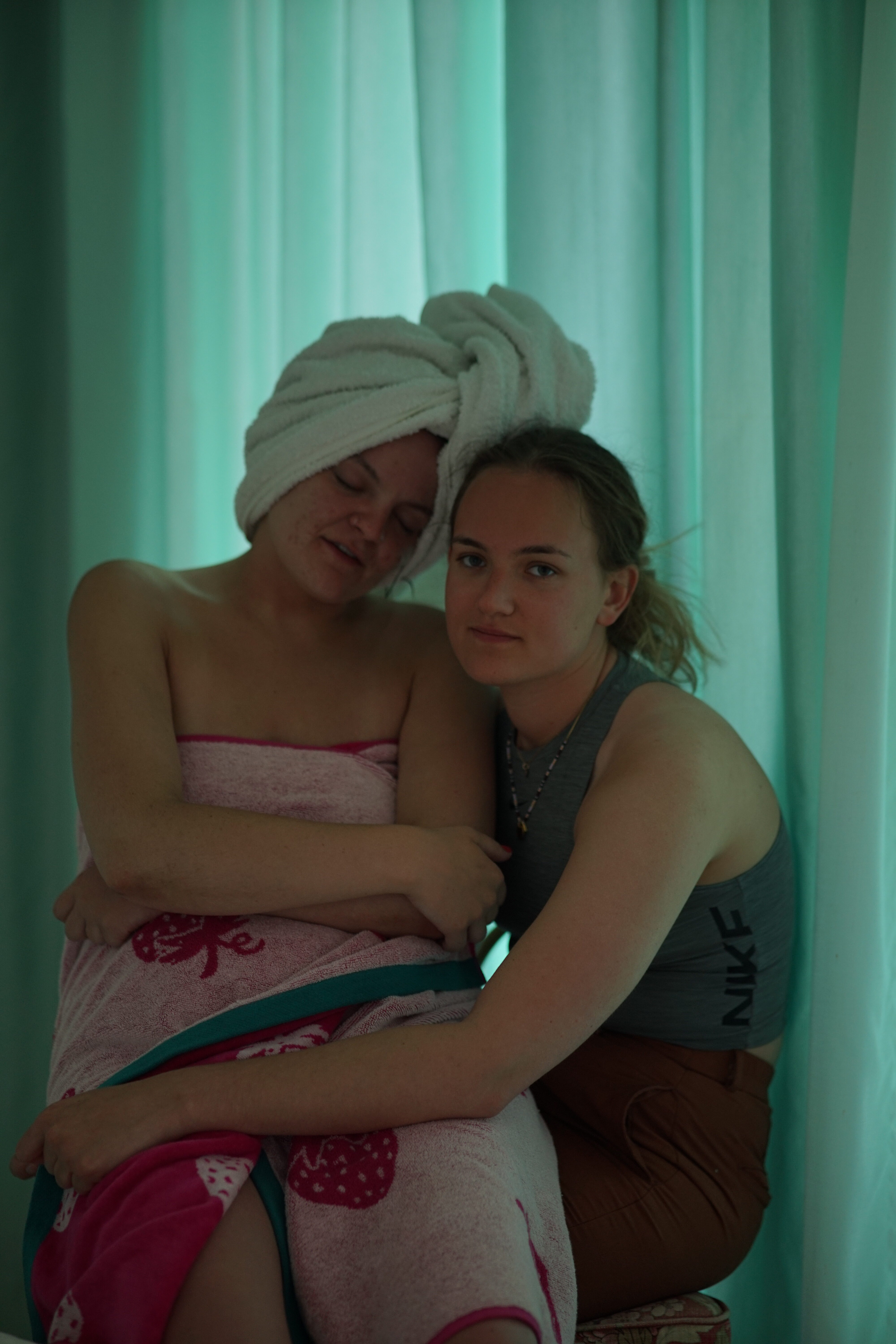
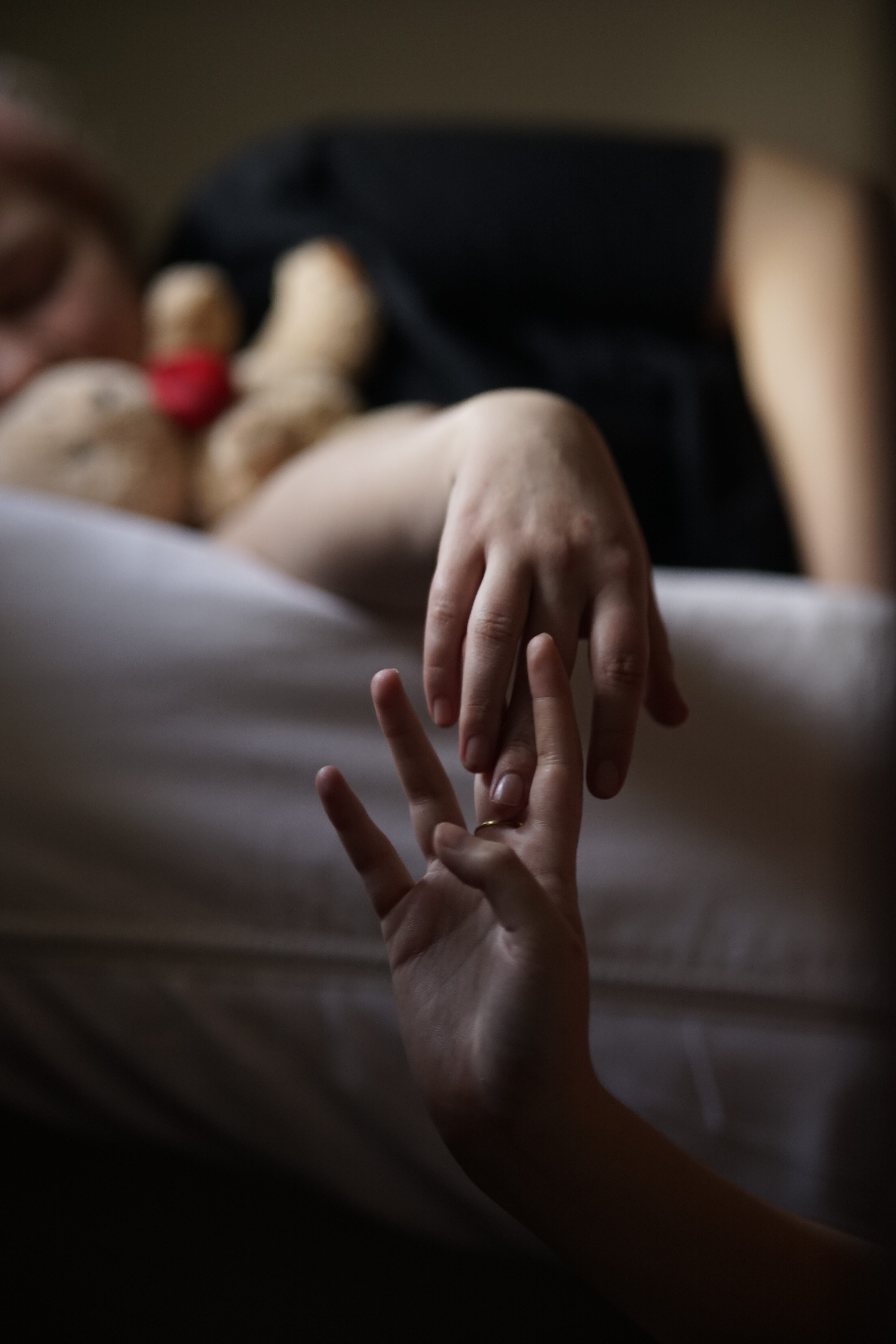
“I went into this expecting to come out with a project about what recovery looks like… What I found was not a recovered woman, but someone who was still in the midst of dealing with these disorders”
Last month, one of Russell-Jeffrey’s photographs – from her 2021 photobook You Will Always Be Loved Even When You Feel Alone – was selected for this year’s Portrait of Britain award. The image is of Xanthe, the protagonist of the series and one of Russell-Jeffrey’s closest friends. Growing up, Xanthe struggled with disordered eating. “[Back then,] I didn’t quite understand it with great depth, or interrogate it in any capacity,” the photographer says.
In 2021, while studying photography at Oxford Brookes University, Russell-Jeffrey decided to move in with Xanthe for two months. She wanted to capture how her friend was healing from adolescent trauma. “Naively, I went into this expecting to come out with a project about what recovery looks like… What I found was not a recovered woman, but someone who was still in the midst of dealing with these disorders,” Russell-Jeffrey says.
The pair spent two months together – day-in, day-out – and Russell-Jeffrey became aware of an “immense loneliness” that consumed Xanthe. This was surprising. “Xanthe is very outspoken, driven, and successful,” Russell-Jeffrey explains. They had grown up together as girls, but this was the first time they had spent a prolonged period of time together as adults. While they were living together, Xanthe experienced a bulimia relapse. “She’s not someone who welcomes pity, but I’d never seen her so defeated,” says Russell-Jeffrey. “I noticed that the problems she grappled with when she was 14 are just as prevalent today.”
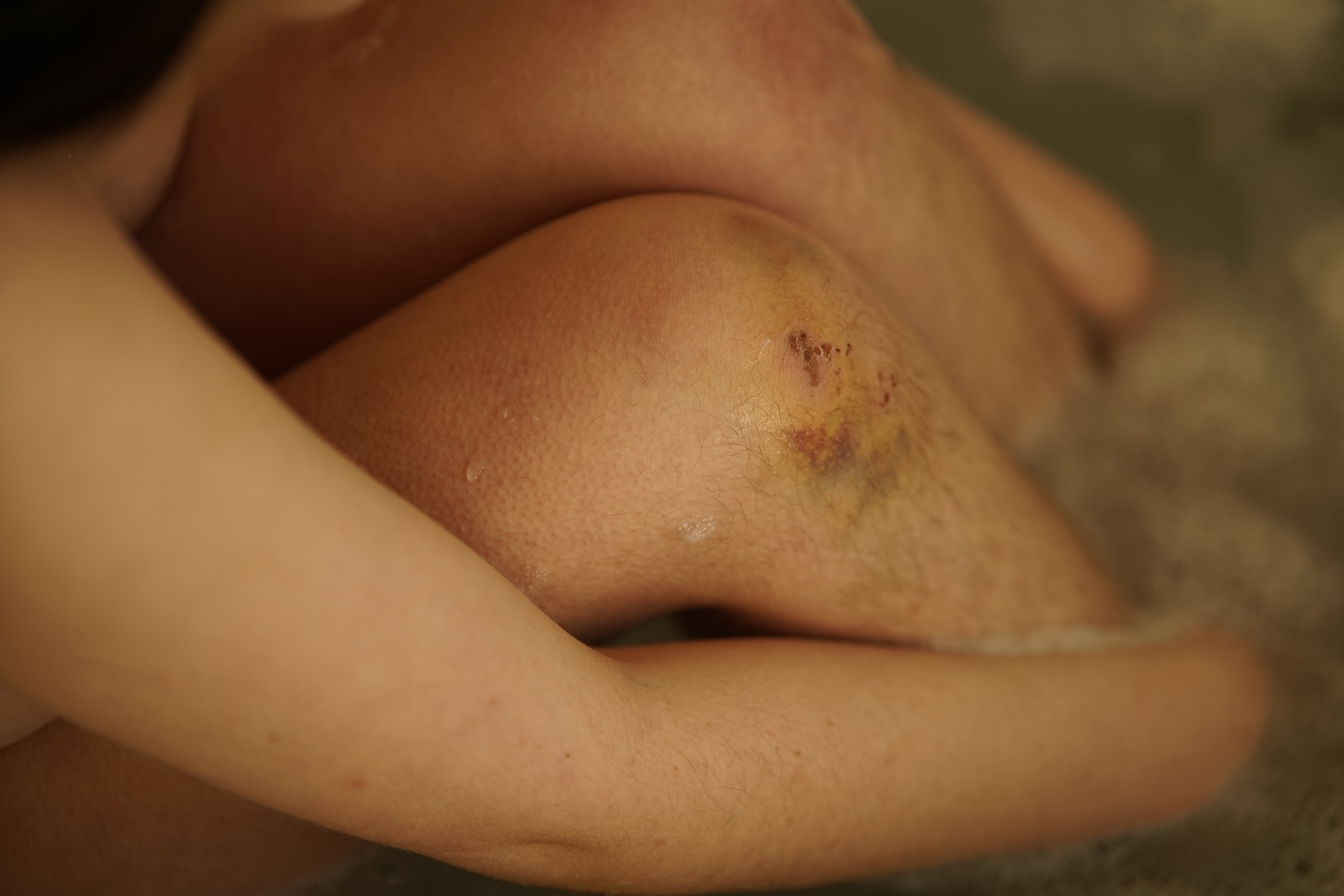
The sequencing of You Will Always Be Loved Even When You Feel Alone echoes the reality of living with an eating disorder – moving through periods of binge eating, relapse, and healing. “Then the cycle begins again, of trying to stay in recovery, and this immense fatigue around that, because you’re never entirely free of it,” Russell-Jeffrey reflects. Alongside the images are Xanthe’s handwritten notes as well as letters from her family. Imbued with a striking vulnerability, these notes provide further insight into the complex process of dealing with trauma.
What emerged was a series not just about recovery, but also friendship, and most crucially, care. Even though Russell-Jeffrey doesn’t appear in the images, her presence is palpable. The series feels like a dialogue of understanding and acceptance between two women that have grappled with many of the same issues. “It was almost a documentation of the small-scale things that you can do, the act of noticing, and not always over-analysing someone’s life but being attentive to it,” she says.
Due to the nature of the work, Russell-Jeffrey had to make certain ethical considerations. Xanthe was involved in every step of the process – while making the images, but also in the editing phases. When the project was finished, the photographer made sure that her friend was aware of all the implications of sharing it on the internet. Most importantly, the door was always left open to take it all down if she wanted to.
Fortunately, “she loved it,” Russell-Jeffrey says. “It made her very emotional. She’s really proud of it as well, which she never thought she’d be able to feel.” The women have also grown closer through collaboration. “We went from having a friendship that we knew so well, to realising there’s so much we don’t know,” Russell-Jeffrey explains. “This was the first time I got to know her in loneliness, which is a rare thing.”
As an adult, it can be difficult to find the right words, or even the time, to properly care for friends as they experience hardship. Russell-Jeffrey’s project is a reminder that sometimes the best act of care is purely our presence. As she pledges in her introduction: “I shall be here not as a spectator to your pain or recovery like before, but as a hand to hold in the sunshine or on the cold bathroom floor, for you will always be loved even when you feel alone.”

